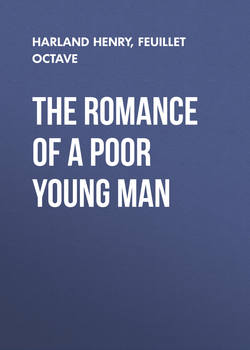Читать книгу The Romance of a Poor Young Man - Feuillet Octave, Harland Henry - Страница 2
BIOGRAPHICAL NOTE
ОглавлениеOctave Feuillet was born at Saint-Lô, in the department of the Manche, on the 11th of August, 1821. His father, who belonged to one of the oldest Norman families, was secretary-general to the prefect, and a little later, in the revolution of 1830, played a prominent part in politics. A hereditary nervousness, amounting finally to a disease, alone prevented him, according to Guizot, from being given a portfolio in the new ministry. Octave inherited his father's excessive sensibility, although in later years he held it more under control. After the death of his mother, which occurred as he was developing in boyhood, he became so melancholy that, at the advice of the physicians, he was sent to a school in Paris, where his health gradually became re-established; afterward, at the Collège de Louis-le-Grand, he greatly distinguished himself as a scholar. It was his father's design to prepare him for the diplomatic career, but already the desire to write had awakened itself in him. When the moment came for choosing a profession, Octave timidly confessed his determination to make literature his business in life; the irascible old gentleman at Saint-Lô turned him out of the house, and cut off his allowance. He returned to Paris, and for three years had a hard struggle with poverty. During this time, under the encouragement of the great actor Bocage, Octave Feuillet brought out three dramas, "Échec et Mat," "Palma," and "La Vieillesse de Richelieu," under the pseudonym of "Désiré Hazard." These were successful, and the playwright's father forgave and welcomed him back to his favour. Octave remained in Paris, actively engaged in literary work, mainly dramatic, but gradually in the line of prose fiction also. In 1846 he published his novel of "Polichinelle," followed in 1848 by "Onesta," in 1849 by "Redemption" and in 1850 by "Bellah." None of these are remembered among Octave Feuillet's best works, but he was gaining skill and care in composition. In 1850, however, he was suddenly summoned home to Saint-Lô by the increased melancholy of his father, who could no longer safely be left alone in the gloomy ancestral mansion which he refused to leave. Octave, with resignation, determined to sacrifice his life to the care of his father, and in this piety he was supported by his charming cousin, Valérie Feuillet, a very accomplished and devoted woman, whom he married in 1851. For eight years they shared this painful exile, the father of Octave scarcely permitting them to leave his sight, and refusing every other species of society. Strangely enough, this imprisonment was not unfavourable to the novelist's genius; the books he wrote during this period – "Dalila," "La Petite Comtesse" (1856), "Le Village," and finally "Le Roman d'un Jeune Homme Pauvre" (1858) – being not only far superior to what he had previously published, but among the very finest of all his works. By a grim coincidence, on almost the only occasion on which Octave Feuillet ventured to absent himself for a day or two, to be present at the performance of his "Roman d'un Jeune Homme Pauvre," when it was dramatized in 1858, the father suddenly died while the son was in Paris. This was a great shock to Feuillet, who bitterly and unjustly condemned himself. He was now, however, free, and, with his wife and children, he returned to Paris. He was now very successful, and soon became a figure at Compiègne and in the great world. In 1862 he published "Sibylle," and was elected a member of the French Academy. A great favourite of the Emperor and Empress, he was tempted to combine the social life at Court with the labours of literature. His health began to suffer from the strain, and, to recover, he retired again to Saint-Lô, where he lived, not in the home of his ancestors, but in a little house above the ramparts, called Les Paillers; for the future he spent only the winter months in Paris. His novels became fewer, but not less carefully prepared; he enjoyed a veritable triumph with "Monsieur de Camors" in 1867. Next year he was appointed Royal Librarian at Fontainbleu, an office which he held till the fall of the Empire. He then retired to Les Paillers again, where he had written "Julia de Trécoeur" in 1867. The end of his life was troubled by domestic bereavement and loss of health; he hurried restlessly from place to place, a prey to constant nervous agitation. His later writings were numerous, but had not the vitality of those previously mentioned. Octave Feuillet died in Paris, December 28, 1890, and was succeeded at the French Academy by Pierre Loti. Octave was the type of a sensitive, somewhat melancholy fine gentleman; he was very elegant in manners, reserved and ceremonious in society, where he held himself somewhat remote in the radiance of his delicate wit; but within the bosom of his family he was tenderly and almost pathetically demonstrative. The least criticism was torture to him, and it is said that when his comedy of "La Belle au Bois Dormant" was hissed off the boards of the Vaudeville in 1865, for three weeks afterward the life of Feuillet was in danger. Fortunately, however, for a "fiery particle" so sensitive, the greater part of his career was one continuous triumph.
E.G.
